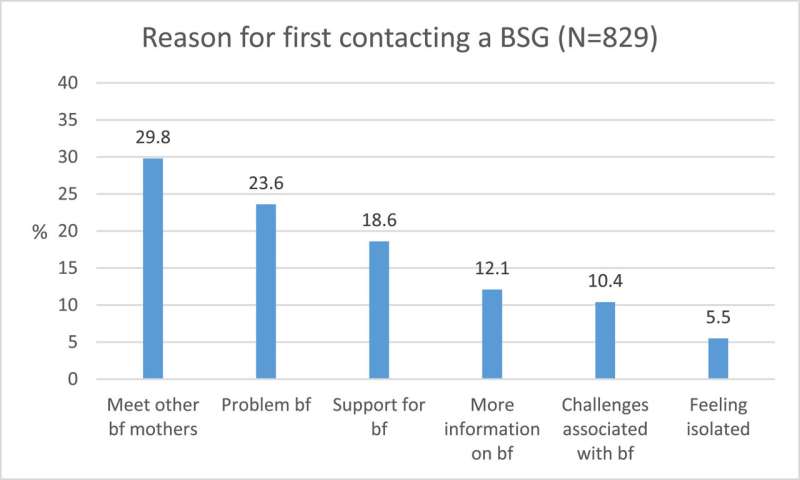A recent study from the School of Nursing & Midwifery at Trinity College explored the profound impact of Breastfeeding Peer Support Groups on the lives of breastfeeding mothers. The research found that these groups not only provide practical assistance but also create a sense of community, helping to normalize the breastfeeding experience. The findings underscore the importance of accessible and inclusive support networks for mothers, which can significantly enhance their overall well-being and the long-term health benefits associated with breastfeeding.

Empowering Breastfeeding Mothers Through Peer Support
The study, published in the journal Midwifery, delved into the perspectives of breastfeeding mothers in Ireland, uncovering the profound impact of Breastfeeding Support Groups. Researchers found that the primary driver for women to attend these groups was not necessarily to address a specific breastfeeding problem, but rather to connect with other mothers who share a similar experience.
Peer supporters within these groups play a crucial role, providing not only practical breastfeeding assistance but also invaluable socio-emotional support. This sense of community and understanding helps to normalize the breastfeeding journey, empowering mothers to navigate the challenges and embrace the joys of this intimate bond with their children.
Normalizing Breastfeeding: The Power of Shared Experiences
One of the key findings of the study highlighted that Breastfeeding Support Groups serve as a safe haven for mothers, allowing them to share their experiences and find solace in the knowledge that they are not alone. More than half of the women in the study actively participated in these groups, both in person and online, on a weekly basis.
The researchers believe that Breastfeeding Support Groups should be promoted as welcoming and inclusive spaces, supporting breastfeeding in general, and not solely focused on addressing specific problems. By fostering a sense of community and shared understanding, these groups can help to destigmatize breastfeeding and encourage more mothers to embrace this natural and beneficial practice.
Expanding Access and Awareness: The Road Ahead
The study’s lead author, Elizabeth McCarthy, Visiting Research Fellow at the School of Nursing and Midwifery and a Lactation Consultant, emphasizes the need for greater resources to be allocated towards promoting awareness and accessibility of Breastfeeding Support Groups.
“Breastfeeding Support Groups provide a vital social outlet for breastfeeding mothers, allowing them to connect with others and normalize their experiences,” McCarthy stated. “Their success cannot be measured solely by breastfeeding rates, but rather by the wider perspectives and well-being of the mothers they serve. It’s crucial that these groups are available in all communities, reaching a diverse range of mothers from various backgrounds.”
By expanding the reach and awareness of Breastfeeding Support Groups, the study suggests that more mothers can benefit from the invaluable social support and practical assistance they provide, ultimately enhancing the overall breastfeeding experience and its long-term health impacts.
